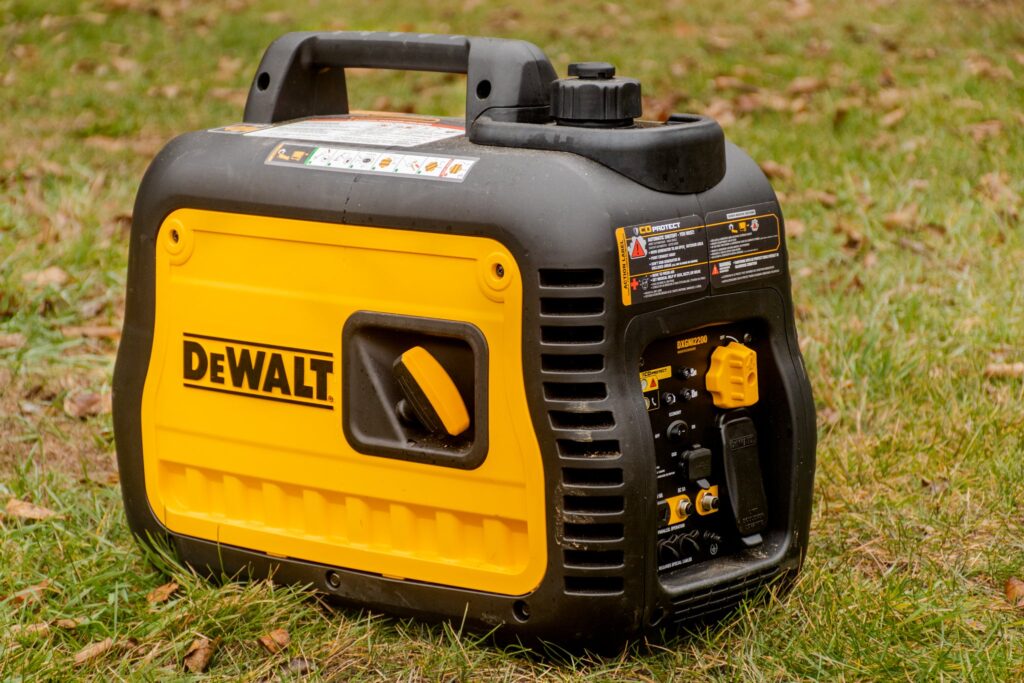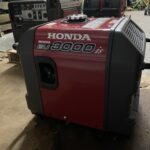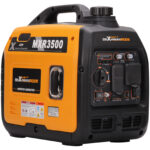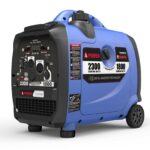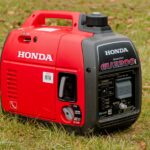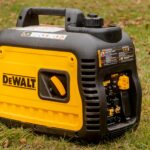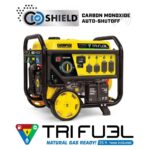A small remote start generator is the perfect backup solution for your home’s power needs. Whether you’re dealing with a power outage or simply want to be prepared for an emergency, having a small remote start generator can provide the peace of mind you need. This generator is designed to be both powerful and easy to use, making it an ideal choice for those who need an efficient and reliable way to keep their home powered in the event of a power outage. With its small size and remote starting capabilities, a small remote start generator is the perfect choice for those who need a reliable backup power solution.
Types of Generators
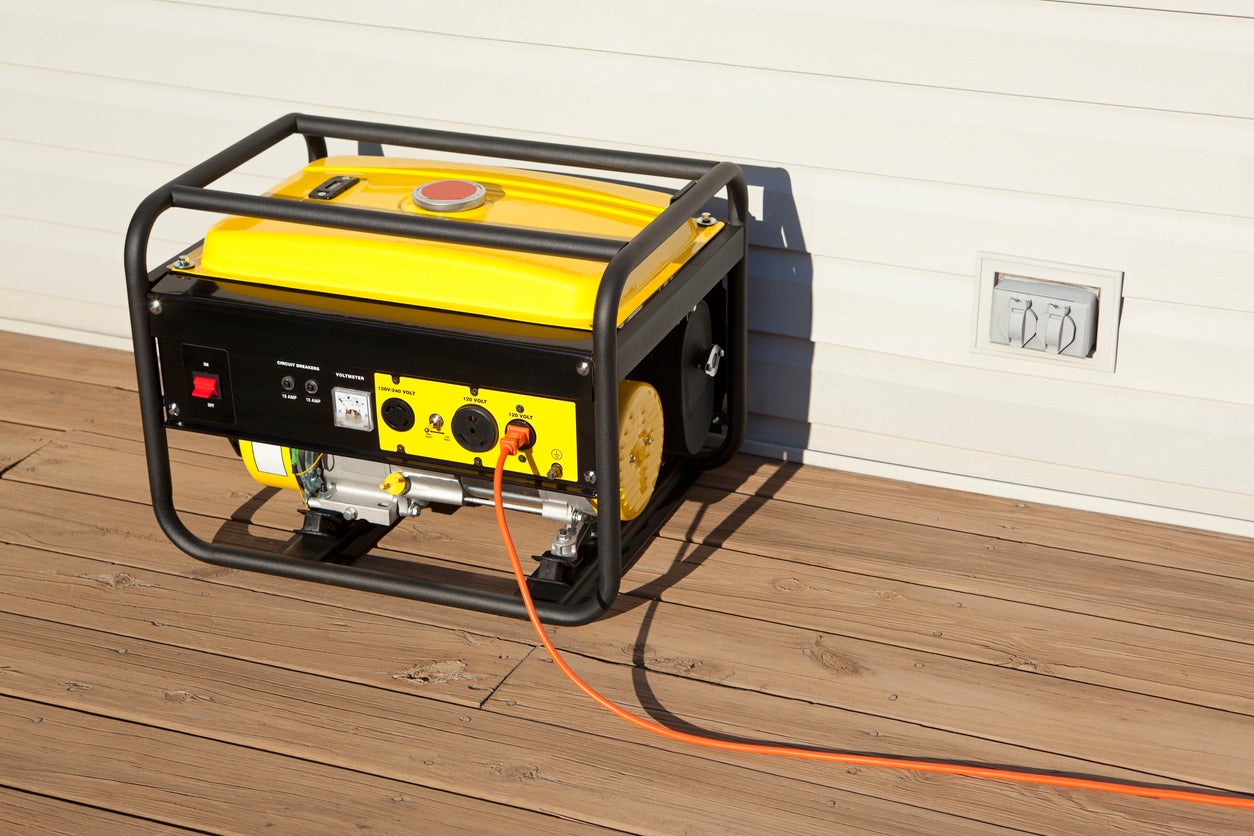
- Portable Generators: Ideal for occasional use, these are smaller and lightweight, making them easy to transport and store.
- Standby Generators: Installed outside the home and connected to an existing fuel source, standby generators are an ideal solution for providing backup power during outages.
- Inverter Generators: Inverter generators are quieter, more efficient, and lighter than traditional generators, making them suitable for camping and tailgating.
- Diesel Generators: Diesel generators are larger, heavier, and more powerful than other types of generators. They are typically used on jobsites, in industrial settings, and in emergency backup situations.
Small remote start generators are a type of generator that are designed to be easy to start and use. They are typically powered by gasoline, propane, or diesel and come in a variety of sizes and power outputs. Small remote start generators are ideal for those who need reliable backup power in the case of an emergency or power outage.
Benefits of Remote Start Generators
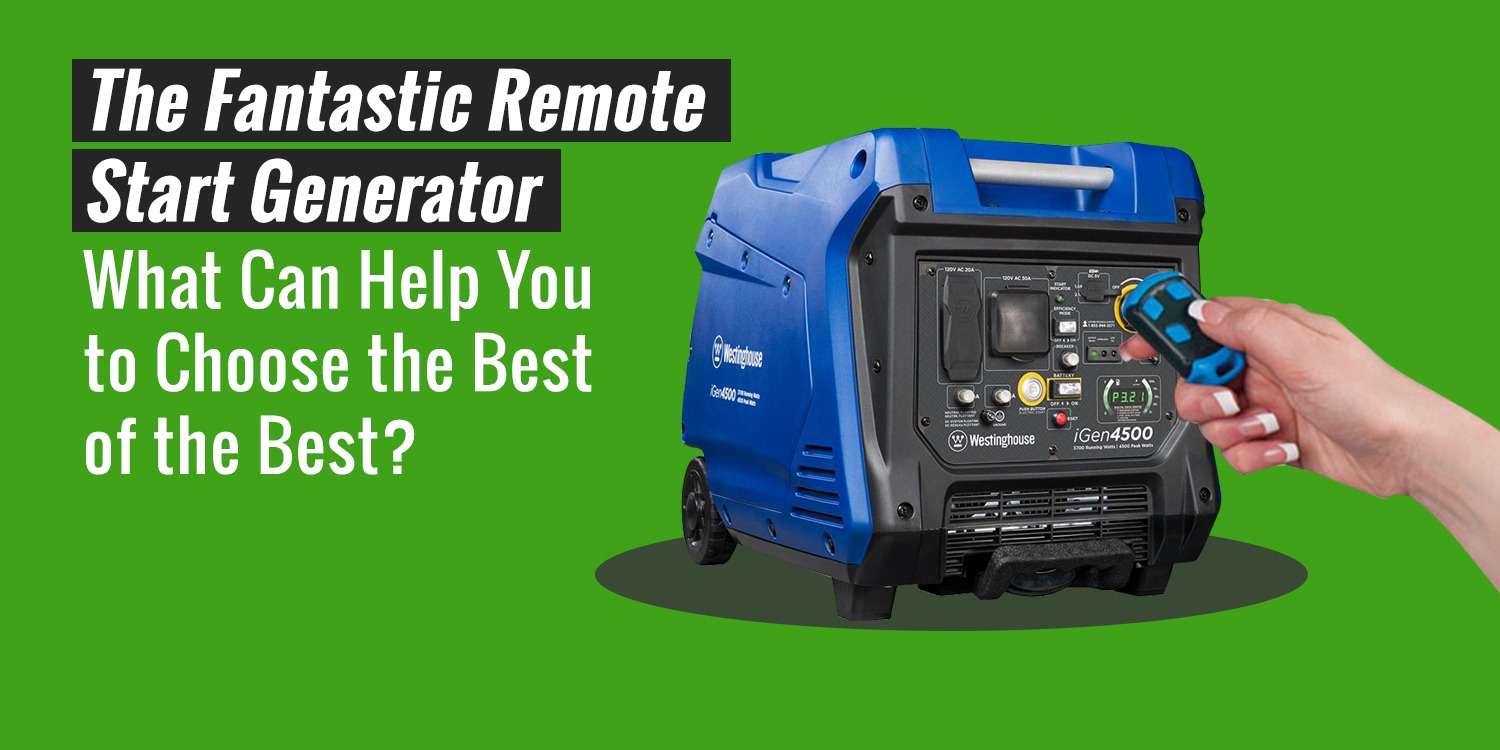
Remote start generators offer a wide range of benefits, allowing users to enjoy the convenience of starting and stopping a generator from a remote location. This makes it easier to manage multiple generators in different locations and to remotely monitor their performance. Remote start generators also provide a greater level of safety, as users can start and stop the generator from a distance, avoiding any potential risk of exposure to hazardous fumes or generator components. Additionally, generators with remote start capabilities are typically more reliable than their manual-start counterparts, as they have fewer components that can fail and require maintenance. Lastly, remote start generators offer the convenience of being able to start and stop the generator quickly and easily, so users can get the power they need when they need it.
Different Sizes of Remote Start Generators
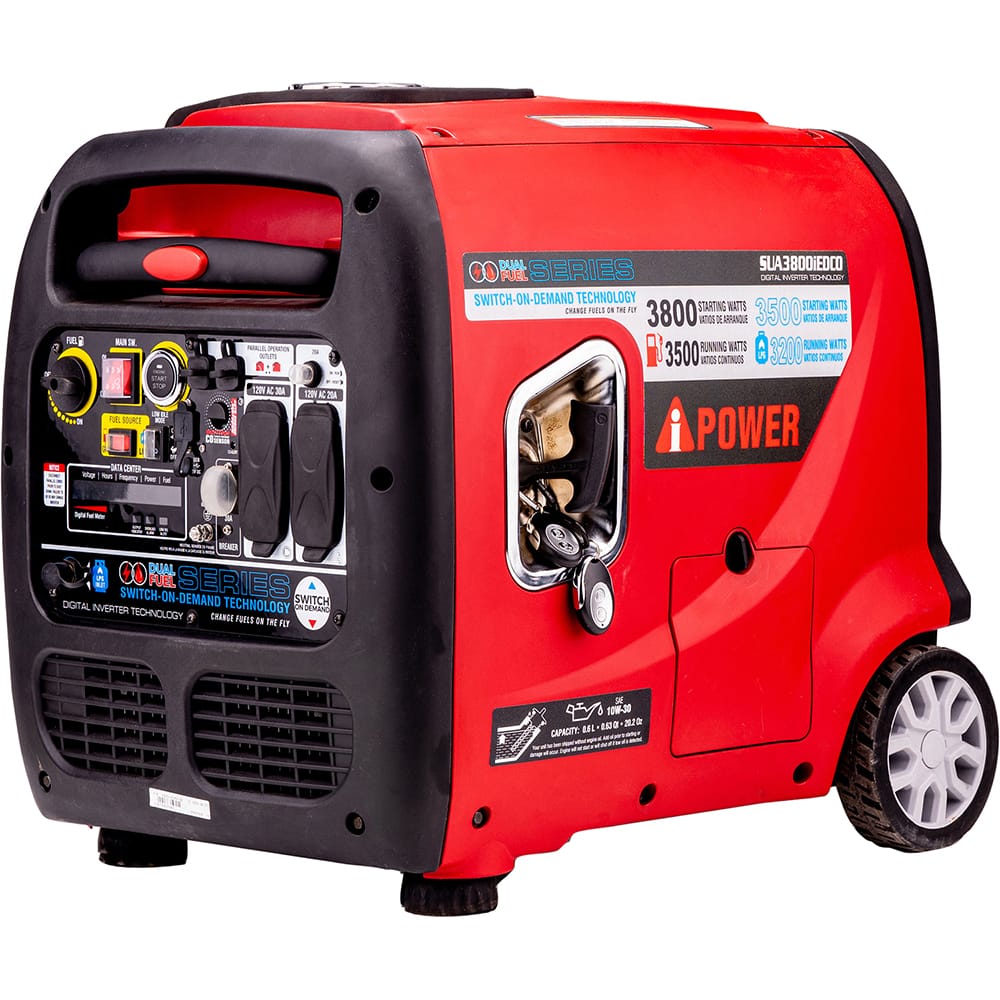
Remote start generators come in a variety of sizes, designed to suit different power needs. Smaller units are ideal for powering smaller appliances, such as lights and laptops, while larger units can provide enough power to run an entire home.
A small remote start generator typically ranges in size from 1000 to 3000 watts, making them ideal for powering camping trips, tailgating, and powering small appliances. They are easy to transport and can be used for emergency backup power for a small home.
Medium-sized remote start generators, ranging from 4000 to 8000 watts, are ideal for powering a larger home or RV. These units are powerful enough to provide power for more demanding appliances such as air conditioners and refrigerators.
Finally, larger remote start generators, ranging from 10,000 watts and up, are designed for commercial or industrial use. These units can provide enough power to run an entire business or factory. They are usually quite heavy and require professional installation.
Cost
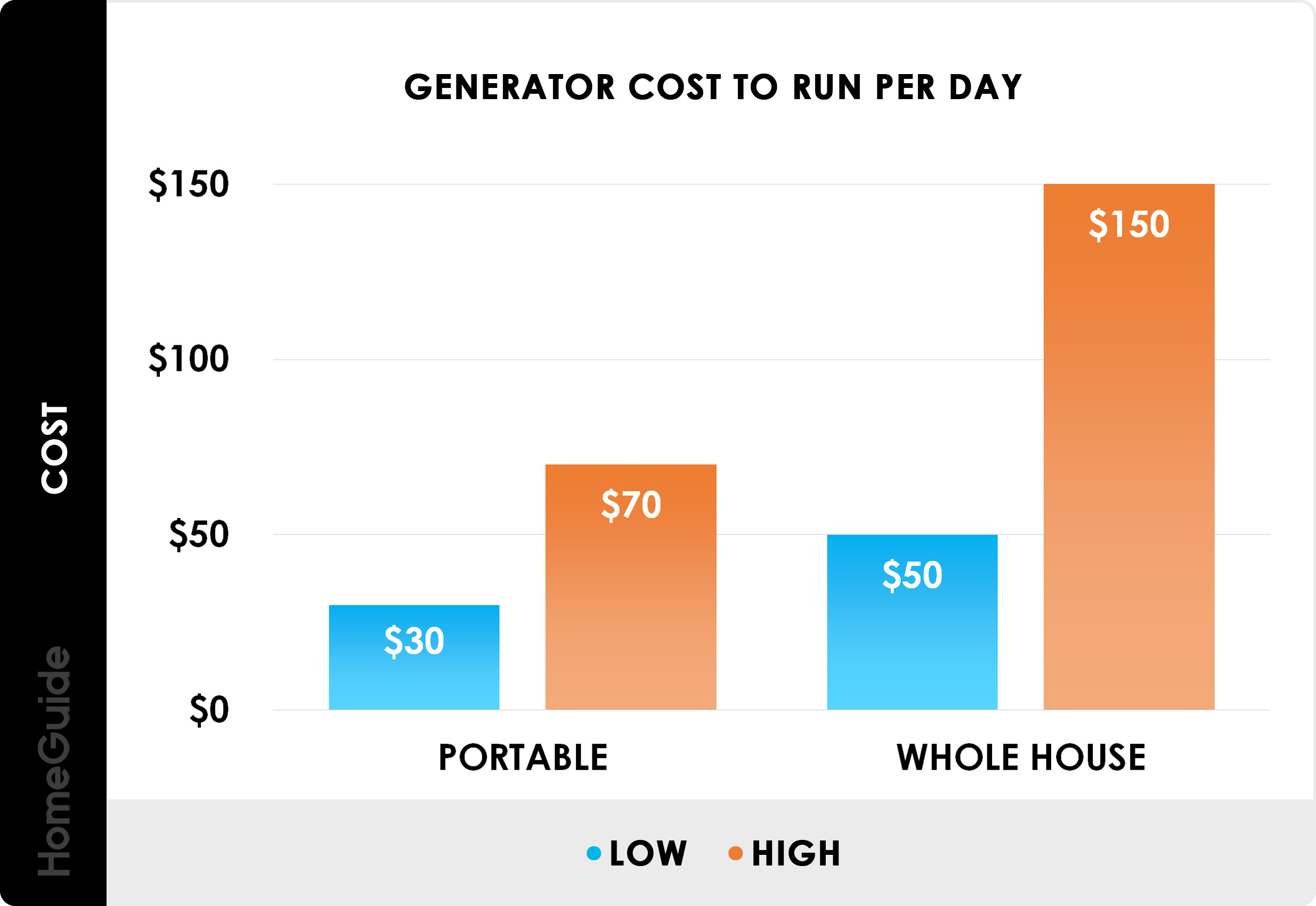
Remote start generators can range in price from a few hundred dollars to several thousands. Consider your budget and how much you are willing to spend on a generator.
Fuel Type
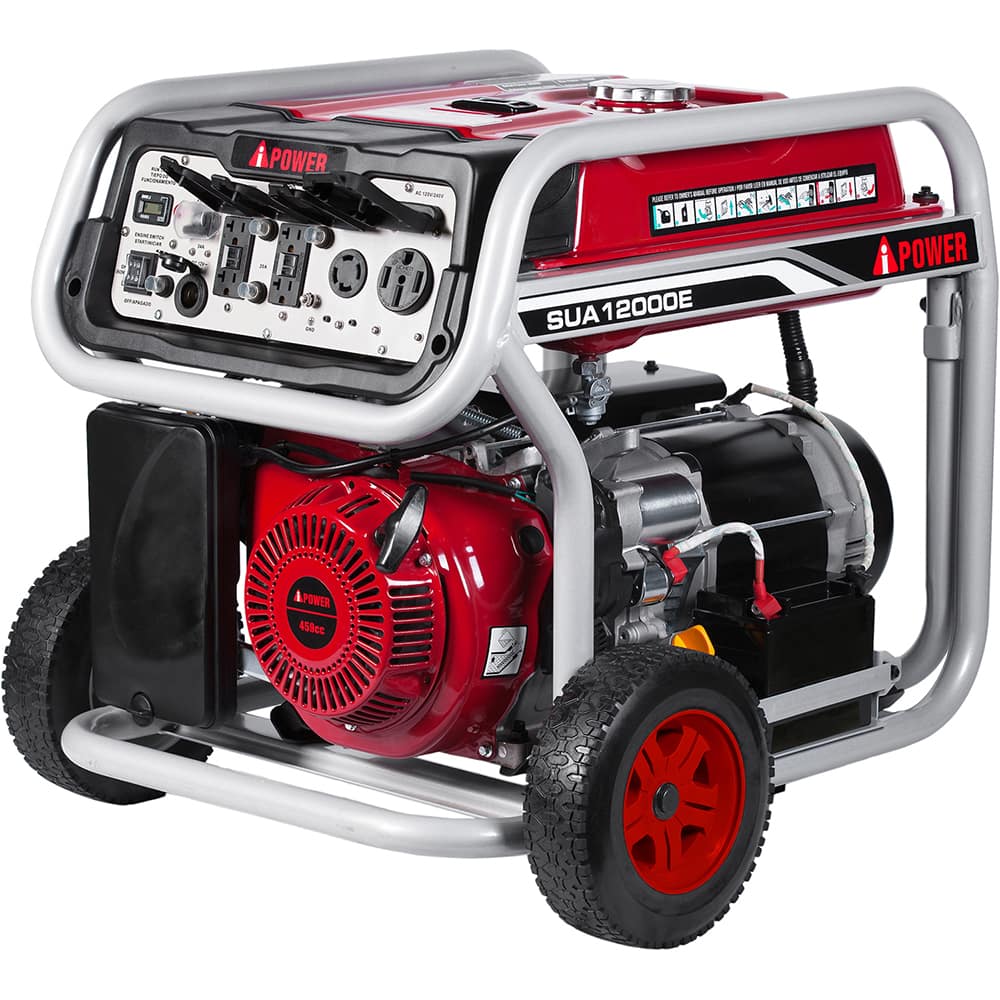
Remote start generators are powered by gasoline, diesel, or propane. Each fuel type has its pros and cons, so it is important to consider which type best suits your needs.
Power Output
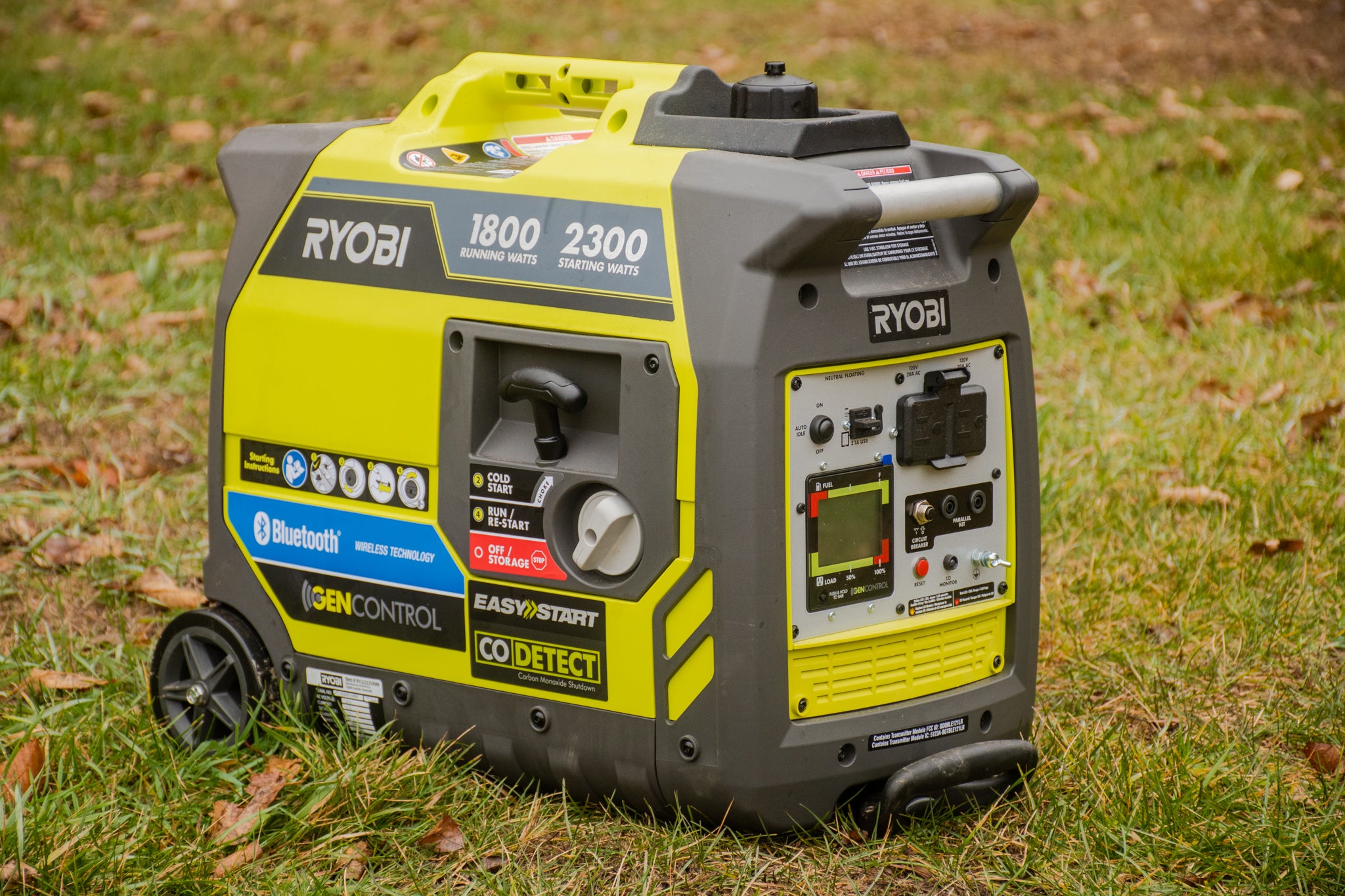
When selecting a remote start generator, you will need to consider the power output it provides. The power output of a generator is measured in watts, and you will need to select a generator that can handle the wattage of the devices you plan to use.
Portability
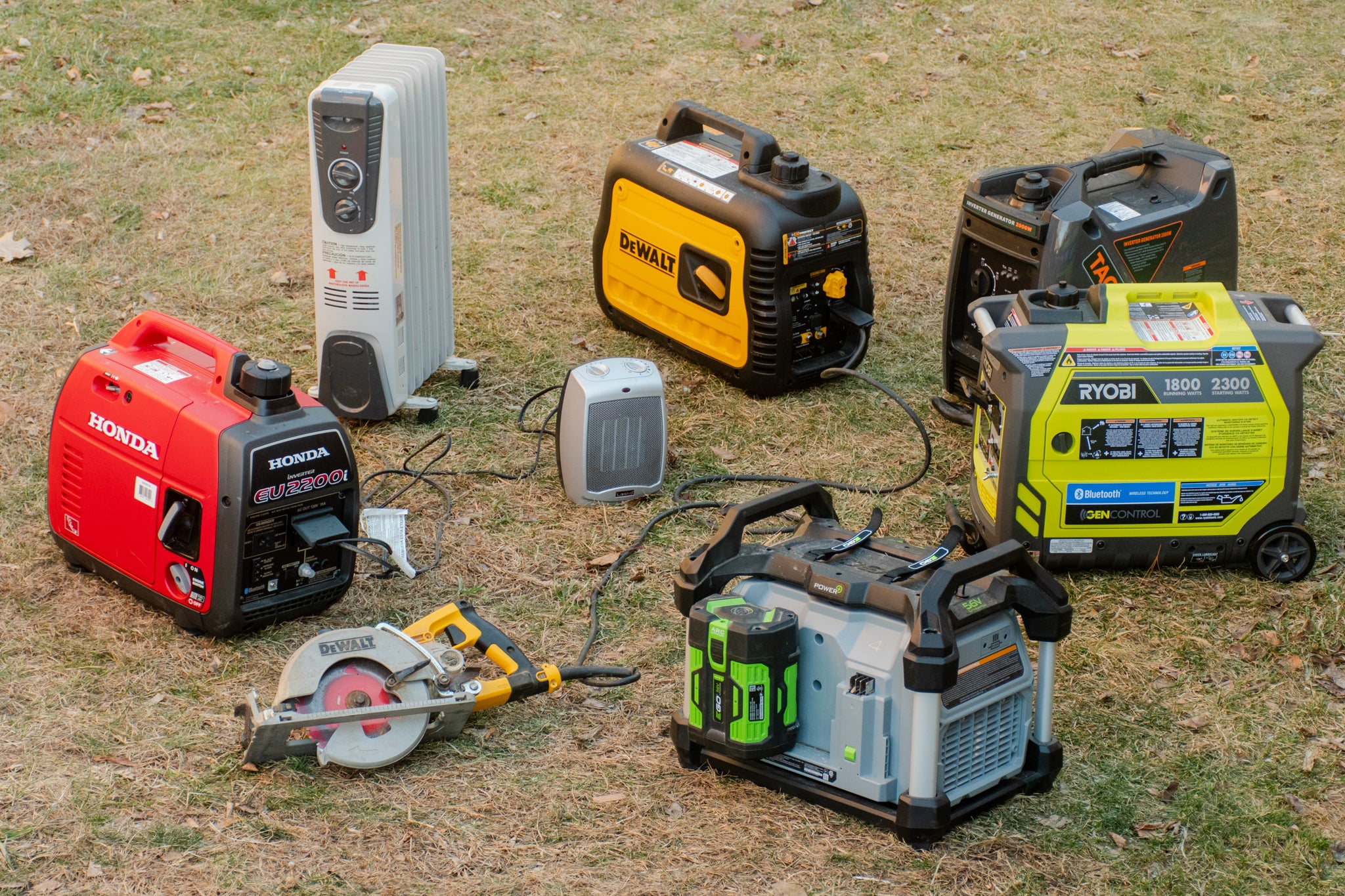
Remote start generators come in a variety of sizes and weights, so you should consider how portable you want the generator to be. If you plan on using the generator in multiple locations, it is important to select one that is light enough to transport easily.
Noise Level
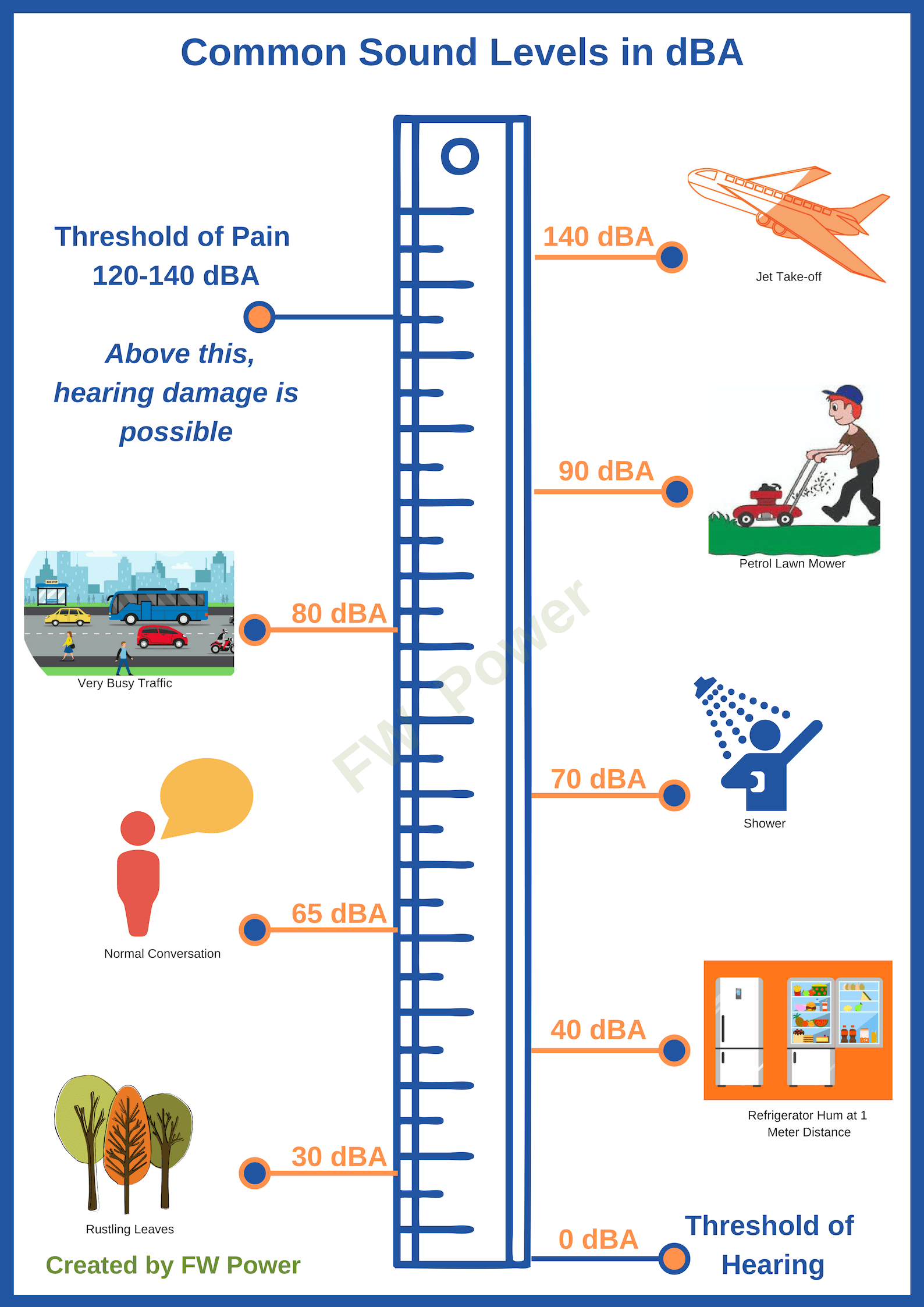
Remote start generators can be quite noisy, so it is important to select one with a low decibel rating. This will help keep the noise level to a minimum and ensure that your generator does not disturb your neighbors.
Popular Remote Start Generators
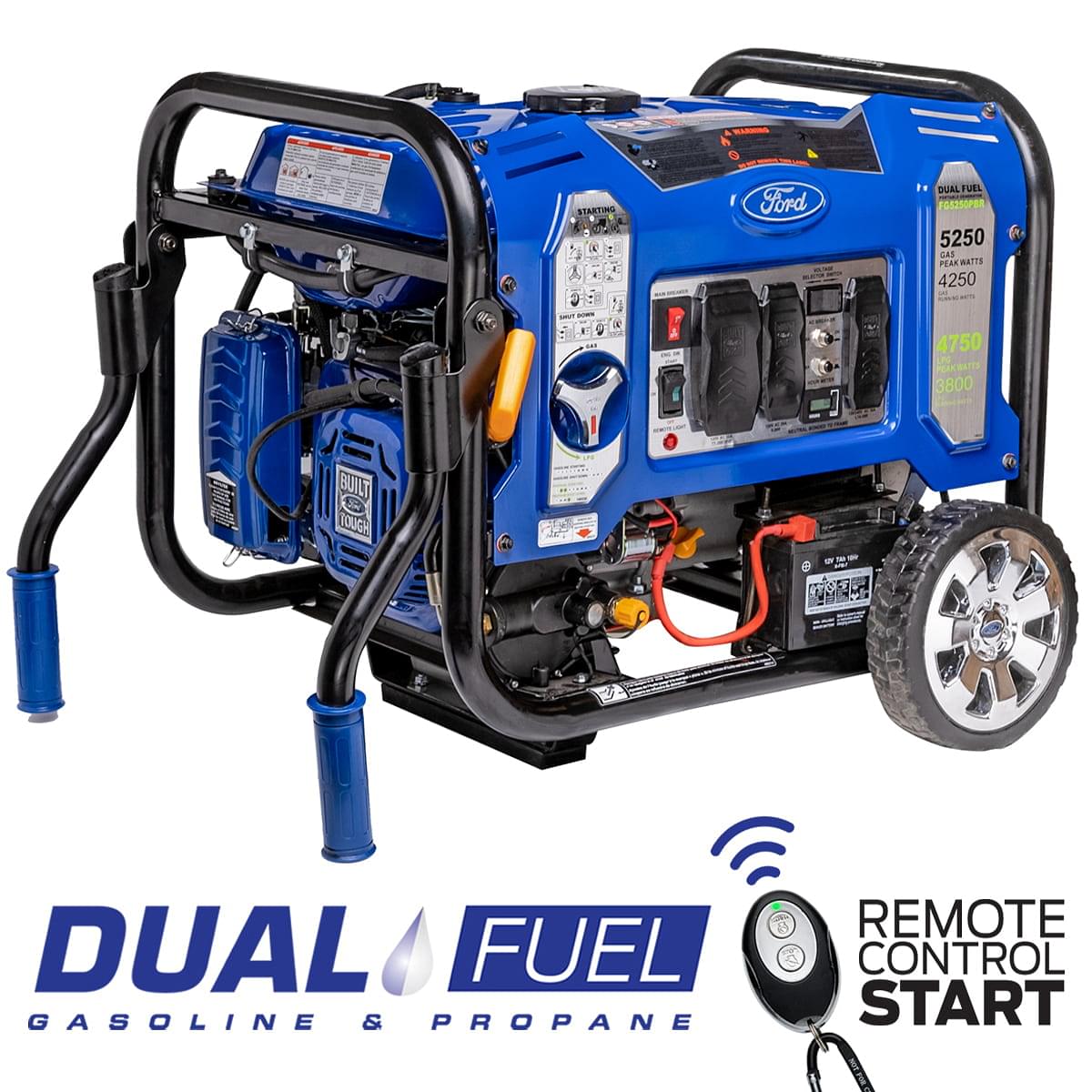
- Champion 4000-Watt RV Ready DH Series Open Frame Inverter with Quiet Technology
- DuroMax XP4400E 4,400-Watt 7.0 HP OHV 4-Cycle Gas-Powered Portable Generator
- Westinghouse WGen7500 Portable Generator with Remote Electric Start
- Briggs & Stratton 30651 P2200 PowerSmart Series Portable 2200-Watt Inverter Generator with Parallel Capability
- Champion Power Equipment 100296 2000-Watt Portable Generator with Wireless Remote Start
These generators are designed to provide reliable power for emergency situations, camping trips, tailgating, and more. They are easy to use, portable, and feature a remote start for added convenience. The Champion 4000-Watt RV Ready DH Series Open Frame Inverter with Quiet Technology features a powerful engine and quiet technology for a quieter generator. The DuroMax XP4400E 4,400-Watt 7.0 HP OHV 4-Cycle Gas-Powered Portable Generator offers a maximum wattage of 4400 and a 7.0 HP engine. The Westinghouse WGen7500 Portable Generator with Remote Electric Start is a powerful, durable, and reliable generator. It features a 7500-watt peak power and 6500-watt rated power. The Briggs & Stratton 30651 P2200 PowerSmart Series Portable 2200-Watt Inverter Generator with Parallel Capability is designed for camping, tailgating, and home backup. It features a parallel capability, allowing you to connect two generators together. The Champion Power Equipment 100296 2000-Watt Portable Generator with Wireless Remote Start is an easy-to-use generator that features a wireless remote start and a 2000-watt peak power.
Pros and Cons of Remote Start Generators
| Pros | Cons |
|---|---|
|
|
Remote start generators offer many benefits, such as ease of operation, the ability to start from a distance, and convenience. However, they may require additional wiring, be difficult to install, and be expensive.
Maintenance of Remote Start Generators
- Check the oil level regularly and top it up as needed.
- Check the fuel filter and replace it regularly.
- Check the air filter and clean or replace it as needed.
- Check the spark plug and replace it if necessary.
- Clean the generator and check for any visible signs of damage.
- Check the battery for any signs of corrosion or damage.
- Check the circuit breaker for any signs of wear and tear.
- Check the power cord for any signs of wear and tear.
- Check the remote start generator for any signs of leakage.
- Check the generator’s voltage regulator and adjust it as needed.
- Check the generator’s alternator and adjust it as needed.
- Run the generator regularly to ensure it is in good working order.
- Perform routine maintenance as recommended by the manufacturer.
Frequently Asked Questions
What is the smallest remote start generator available?
The smallest remote start generator available is the WEN 56310i-RV Super Quiet 3100-Watt RV-Ready Portable Inverter Generator with Wireless Remote Start. It is lightweight at just 68 lbs, making it perfect for recreational vehicles and camping trips. It has a maximum power output of 3100 watts, enough to power larger appliances. The generator is also equipped with a digital LCD display, electric start, low-oil shutdown, and a wireless remote with a range of up to 80 feet.
What are the advantages of having a generator with electric start?
Electric start generators provide an easy and hassle-free start-up every time. This eliminates the need to manually pull a cord to start the engine. It also prevents the user from having to bend over to start the engine. Electric start generators also allow the user to easily turn off the engine with the push of a button. In addition, electric start generators provide a more consistent starting process, which can be especially beneficial in cold weather. Finally, electric start generators are more convenient and easier to use compared to manual start generators.
What size generator would be best for my home’s power needs?
To determine the best size generator for your home, consider the power requirements of the items you want to power. Calculate the total wattage of these items and purchase a generator that is rated to supply at least that amount of power. For example, if the total wattage of the items you want to power is 3,000 watts, you should purchase a generator that is rated to supply at least 3,000 watts. You should also consider the size of the generator and your available space to ensure it will fit where you need it to.
How Does a Small Remote Start Generator Work?
A small remote start generator is a portable generator that is equipped with a remote starter. The remote starter uses a remote control device to turn the generator on and off from a distance. To start the generator, the user presses the start button on the remote control device. This sends a signal to the generator’s receiver which then activates the starter motor, starting the generator. To shut the generator off, the user presses the stop button on the remote control, which sends a signal to the receiver to deactivate the starter motor, shutting the generator off.
What safety precautions should I take when using a generator?
Place generator in a well-ventilated area and away from windows, doors, and vents. Avoid using indoors or in enclosed spaces. Use a ground fault circuit interrupter (GFCI) outlet when using a generator outdoors. Always use proper extension cords with a rating equal to or higher than the generator’s output. Use heavy-duty, outdoor rated extension cords. Keep the generator dry and do not use it in rain or wet conditions. Avoid refueling the generator while it is running. Read the user’s manual for additional safety information.
Conclusion
A small remote start generator provides reliable, convenient power when the main power source is disrupted. With a range of sizes and features to choose from, a remote start generator is the perfect solution for keeping your home powered during an outage. They are easy to install and maintain and provide peace of mind that your home will stay powered in the event of a power outage.
